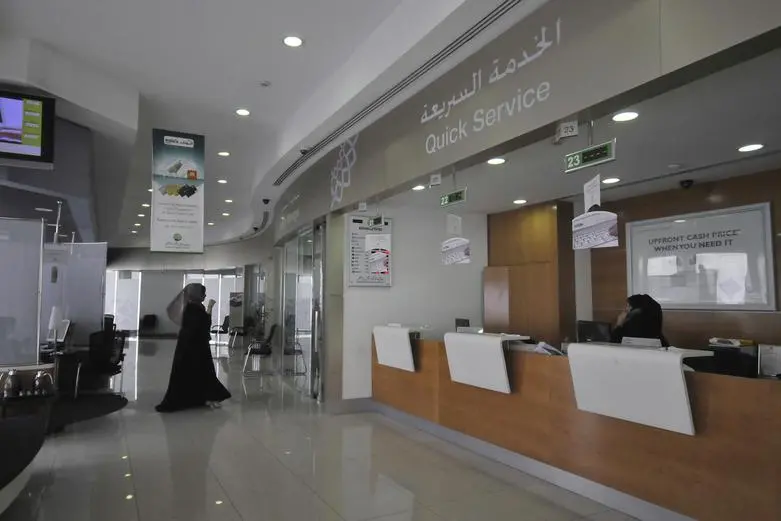PHOTO
MANAMA - Islamic banks’ asset growth is expected at around five per cent for the next couple of years amid the economic slowdown experienced by GCC countries, said Central Bank of Bahrain (CBB) Governor Rasheed Al Maraj.
In his keynote address at the opening of the 24th edition of the World Islamic Banking Conference (WIBC), Mr Al Maraj said this was much slower than the historical level of 14 to 15pc.
However, the number of Islamic banks has grown to around 172 with another 83 or so Islamic windows within conventional banks.
Being held under the patronage of His Royal Highness Prime Minister Prince Khalifa bin Salman Al Khalifa at the ART Rotana Hotel in Amwaj Islands, the conference is convened by Middle East Global Advisors in strategic partnership with the CBB.
The conference this year is being held under the theme Strengthening and Developing the Islamic Economy.
Addressing the gathering, Mr Al Maraj said in the year to date there has been a global issuance of Islamic bonds (sukuk) worth $22 billion, which is a record for Islamic banking.
The CBB Governor said 2018 promises to be another record year with almost $40bn of sukuk maturing next year.
Calling commodity Murabaha as the workhorse for all Islamic banking transactions, Mr Al Maraj said: “As we all know, this product has caught the attention of Sharia scholars and critics alike who question the veracity and true nature of this time-tested product. This would be a good time to explore alternatives and develop them further.”
“The Wakala product has found a lot of popularity and acceptance among Islamic market players for liability products, but it also has its share of challenges, which need to be analysed,” he added.
Mr Al Maraj said no other asset class ranked above sukuk in the market place as far as transferability and secondary market activity was concerned.
“As we all know sukuk are considered a commodity class, which can provide the foundation for quite a few commodity murabaha products. The only constraint to this is the attendant price-risk, one would face using sukuk as an inventory of alternative commodities. This price risk can be mitigated using top credit quality issuances in the investment grade arena and relying on shorter maturities,” he added.
“This undoubtedly would not only reduce the reliance on commodities for murabahas but it would also go a long way in addressing the Basel liquidity requirements.”
Reiterating the faith-based nature of Islamic banking, the CBB Governor said it was critical for Islamic banks to adopt a robust Sharia governance framework.
“The responsibility falls on the board of directors and senior management of Islamic banks to comply with the letter and spirit of Sharia and build an unmatched reputation for ethical banking,” he added.
In his keynote address at the opening of the 24th edition of the World Islamic Banking Conference (WIBC), Mr Al Maraj said this was much slower than the historical level of 14 to 15pc.
However, the number of Islamic banks has grown to around 172 with another 83 or so Islamic windows within conventional banks.
Being held under the patronage of His Royal Highness Prime Minister Prince Khalifa bin Salman Al Khalifa at the ART Rotana Hotel in Amwaj Islands, the conference is convened by Middle East Global Advisors in strategic partnership with the CBB.
The conference this year is being held under the theme Strengthening and Developing the Islamic Economy.
Addressing the gathering, Mr Al Maraj said in the year to date there has been a global issuance of Islamic bonds (sukuk) worth $22 billion, which is a record for Islamic banking.
The CBB Governor said 2018 promises to be another record year with almost $40bn of sukuk maturing next year.
Calling commodity Murabaha as the workhorse for all Islamic banking transactions, Mr Al Maraj said: “As we all know, this product has caught the attention of Sharia scholars and critics alike who question the veracity and true nature of this time-tested product. This would be a good time to explore alternatives and develop them further.”
“The Wakala product has found a lot of popularity and acceptance among Islamic market players for liability products, but it also has its share of challenges, which need to be analysed,” he added.
Mr Al Maraj said no other asset class ranked above sukuk in the market place as far as transferability and secondary market activity was concerned.
“As we all know sukuk are considered a commodity class, which can provide the foundation for quite a few commodity murabaha products. The only constraint to this is the attendant price-risk, one would face using sukuk as an inventory of alternative commodities. This price risk can be mitigated using top credit quality issuances in the investment grade arena and relying on shorter maturities,” he added.
“This undoubtedly would not only reduce the reliance on commodities for murabahas but it would also go a long way in addressing the Basel liquidity requirements.”
Reiterating the faith-based nature of Islamic banking, the CBB Governor said it was critical for Islamic banks to adopt a robust Sharia governance framework.
“The responsibility falls on the board of directors and senior management of Islamic banks to comply with the letter and spirit of Sharia and build an unmatched reputation for ethical banking,” he added.
Copyright 2017 Al Hilal Publishing and Marketing Group Provided by SyndiGate Media Inc. (Syndigate.info).





















